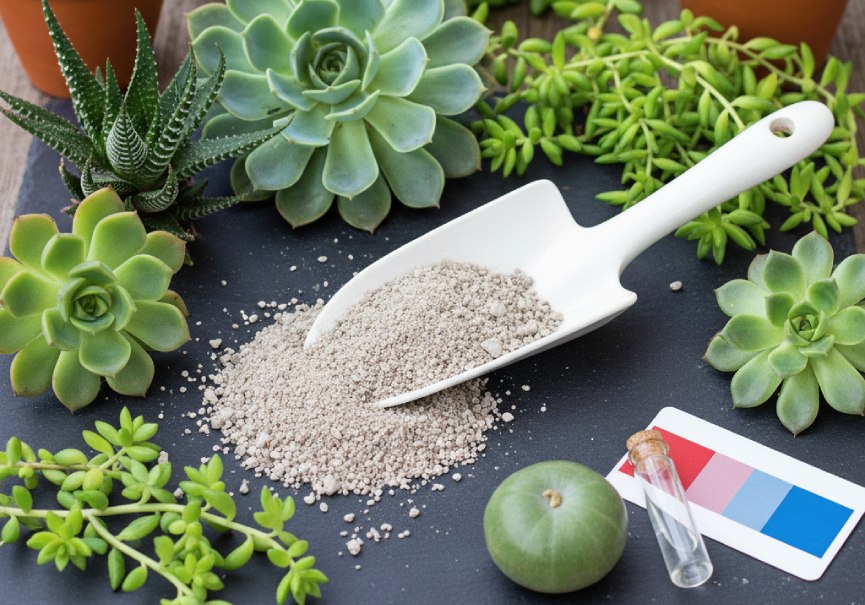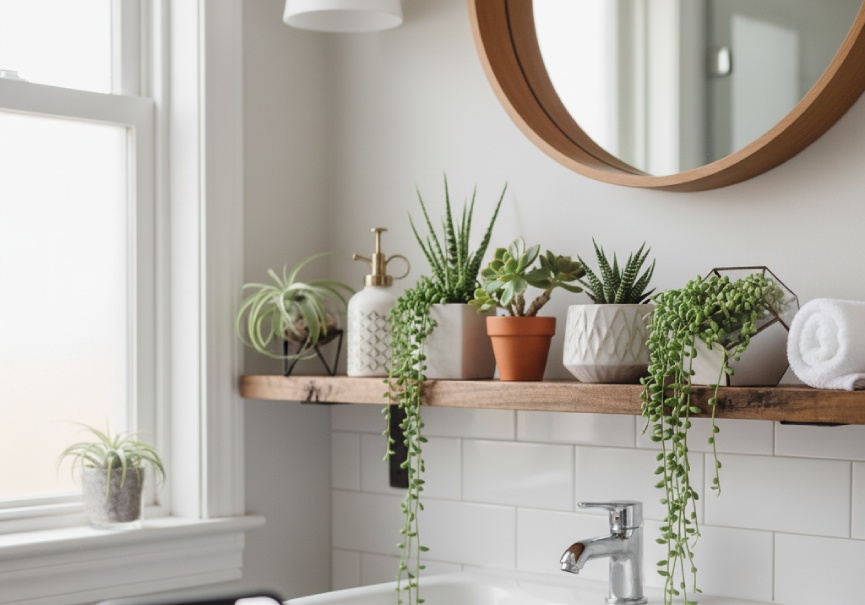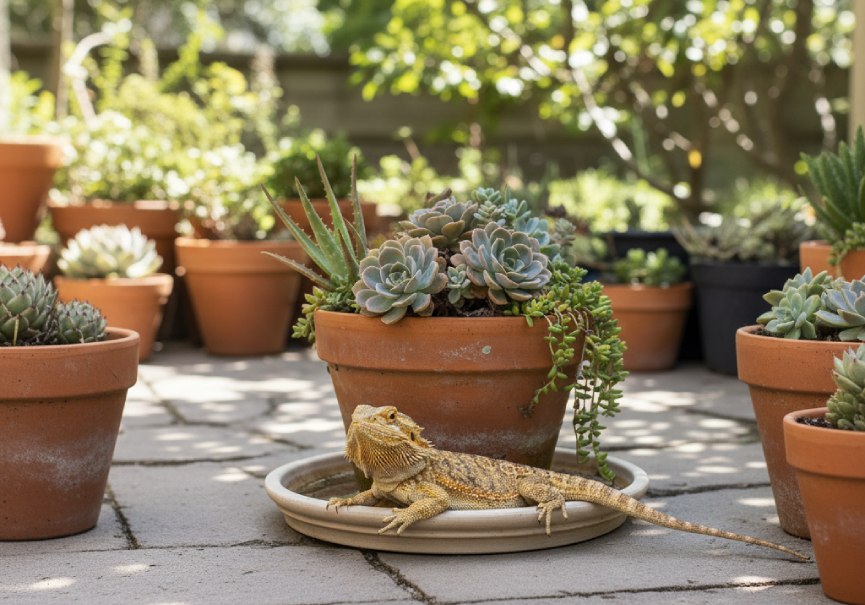Unveiling the Secrets: Are Succulents Acid-Loving Plants?

Introduction
Succulents are a diverse group of water-storing plants admired for their striking shapes, textures, and colors. Originating from arid and semi-arid environments, they have evolved remarkable adaptations that allow them to thrive in low-moisture, nutrient-poor conditions. These hardy plants store water in their leaves, stems, and roots, making them popular choices for indoor and outdoor gardens where low maintenance is desired.
With such unique characteristics, many gardeners wonder: are succulents acid-loving plants? Understanding soil pH preferences is crucial for optimal growth, nutrient absorption, and overall plant health. While succulents are tolerant of a range of soil types, providing the right pH balance can significantly enhance their vitality and longevity.
Understanding Succulents
Succulents are not confined to one plant family. Instead, they span several botanical groups. Common types include Aloe, Echeveria, Haworthia, Sedum, and Crassula. Despite their diversity, they share a key feature: thick, fleshy tissues that allow them to store water efficiently.
These plants have adapted to survive in challenging environments where rainfall is scarce and soil drains rapidly. Their ability to withstand drought makes them suitable for various landscapes and indoor spaces with limited water availability.
Do Succulents Prefer Acidic Soil?
The Short Answer
Most succulents are not classified as acid-loving plants. They generally thrive in slightly acidic to neutral soil, typically with a pH range of 6.0 to 7.0. Many species also tolerate slightly alkaline soil, demonstrating their versatility.
This means that while mild acidity is acceptable, highly acidic environments are not ideal for most succulent varieties.
Why Soil pH Matters
Soil pH refers to how acidic or alkaline the soil is, measured on a scale from 0 to 14.
- Below 7: Acidic soil
- 7: Neutral soil
- Above 7: Alkaline soil
pH significantly influences plant growth by affecting:
- Nutrient availability
- Microbial activity
- Water absorption
- Root function
Even if a plant is drought-tolerant, an incorrect pH can hinder nutrient uptake and lead to slow growth, discolored foliage, and weakened health.
Ideal pH Range for Succulents
For most succulent species, the ideal pH range is between 6.0 and 7.0. This slightly acidic to neutral environment promotes proper nutrient absorption and supports beneficial soil microbes.
Although succulents can survive outside this range, consistent imbalance may cause stress and nutrient deficiencies.
Acid-Loving Succulents
While not the majority, a few succulents do prefer more acidic soil, typically within a pH range of 5.5 to 6.5. This group includes certain species of:
- Aeonium
- Echeveria
- Haworthia
These species can benefit from slightly acidic soil amendments and organic matter for optimal growth.
Succulents That Prefer Alkaline Soil
Interestingly, some succulents naturally thrive in slightly alkaline soil with pH levels up to 7.5 or even 8.5. These species have adapted to limestone-rich or mineral-dense environments.
Examples include:
- Agave
- Yucca
- Opuntia (Prickly Pear Cactus)
These succulents can tolerate environments where many other plants would struggle.
How to Test Soil pH for Succulents
To provide proper growing conditions, testing soil pH is essential. You can use:
- Home soil pH test kits
- Digital pH meters
- Laboratory soil analysis (for outdoor garden beds)
Testing ensures you understand whether adjustments are needed before planting or repotting.
Adjusting Soil pH for Succulents
To Make Soil More Acidic
Use:
- Compost
- Peat moss
- Pine bark
- Elemental sulfur (slow-acting)
- Acid-based fertilizers (used with caution)
To Increase Alkalinity
Apply:
- Crushed eggshells
- Agricultural lime
- Dolomite lime
- Crushed oyster shells
Always make changes gradually to avoid shocking the plant roots.
Additional Factors Affecting Succulent Health
Even with the correct pH, succulents require proper care to thrive. Key factors include:
Adequate Sunlight
Most succulents prefer bright, indirect sunlight. Insufficient light results in stretched, weak growth.
Well-Draining Soil
Succulents are highly vulnerable to root rot. Use soil designed for succulents or cactus mix for proper aeration and drainage.
Proper Watering
Water deeply but infrequently, allowing soil to dry between waterings. Overwatering is one of the most common reasons succulents fail.
Temperature
Protect plants from frost and extreme heat fluctuations. While hardy, they cannot withstand freezing temperatures without protection.
Common Problems Caused by pH Imbalances
Incorrect soil pH may lead to:
- Yellowing or pale leaves
- Stunted growth
- Poor root development
- Nutrient deficiencies (iron, zinc, potassium, and others)
- Root rot in acidic, compact soil
- Poor flowering in certain species
Monitoring pH ensures long-term plant vigor and resilience.
Conclusion
So, are succulents acid-loving plants?
Not typically. Most succulents prefer slightly acidic to neutral soil with a pH of 6.0 to 7.0. While some species thrive in mildly acidic environments and others tolerate alkaline soil, extremes should be avoided.
By maintaining balanced soil pH, providing well-draining soil, offering adequate sunlight, and watering properly, you can ensure your succulents grow healthy and strong.
FAQs
Q1. Can succulents be considered acid-loving plants? Ans:- Most succulents are not acid-loving. They prefer slightly acidic to neutral soil and can tolerate mild alkalinity.
Q2. What is the ideal pH range for succulents? Ans:- The ideal pH range is between 6.0 and 7.0, though some species have slightly different preferences.
Q3. How can I adjust soil pH for succulents? Ans:- To lower pH, use compost, peat moss, or sulfur. To raise pH, use lime or crushed eggshells. Adjust slowly to avoid root shock.
Q4. Are there acid-tolerant succulent species? Ans:- Yes. Certain Aeonium, Echeveria, and Haworthia species prefer pH levels between 5.5 and 6.5.
Q5. How often should I test soil pH? Ans:- Test every few months, especially if you use amendments or notice growth issues.
Q6. Do succulents like acidic water? Ans:- Slightly acidic to neutral water (pH 6.0 to 7.0) is ideal for most succulents.
Q7. What is the best soil for succulents? Ans:- Use a well-draining cactus or succulent mix with a slightly acidic to neutral pH. Adding organic matter can improve soil texture and pH balance.






